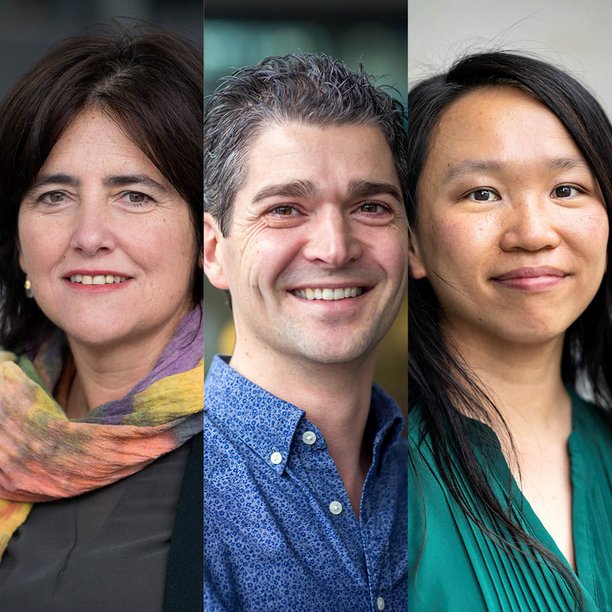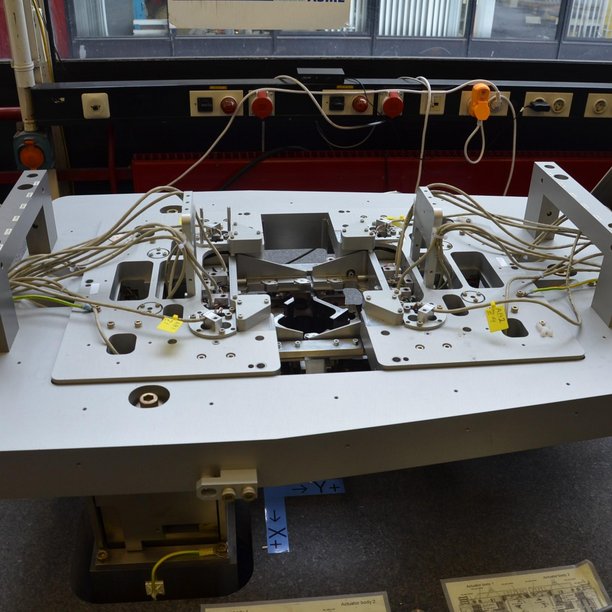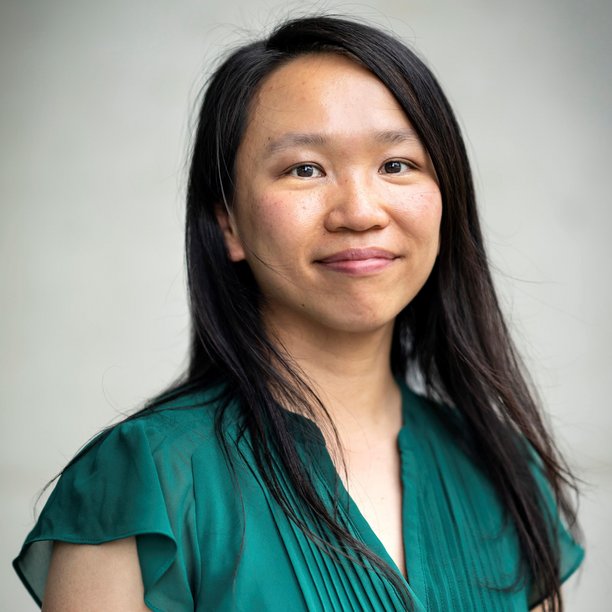This interview focuses on Innovation and Industry Connections and will introduce you to some of the minds behind the Control Systems Technology and Dynamics and Control groups. Associate Professor Tom Oomen, Assistant Professor Michelle Chong (both from the Control Systems Technology group) and Full Professor Ines Lopez Arteaga (Dynamics and Control group) tell you about their successes, challenges and dreams and what makes working at the TU/e Mechanical Engineering department so special.
Can you tell us about a breakthrough you’ve made in the past 12 months?
Tom: While I do a lot of work in mechatronics, my work can be applied to much broader systems. Even human breathing. Last year we did just that, together with a company called Macawi that builds respiration systems and a colleague from another research group within the university. As you are probably aware, mechanical ventilators are vital for patients who cannot breathe on their own, which has become very important in the last year due to COVID-19. One of the major challenges facing doctors is controlling the pressure of the ventilators, to ensure patients get exactly the amount of air they need.
Together with a PhD student, we developed a technique based on self-learning algorithms that improves the performance of the mechanical ventilator by a factor of ten. We used a technique called Repetitive Control, which we’re developing for printers and wafer scanners to improve positioning accuracy. In industry machines, our algorithms can learn from machine errors and actually correct them within a few iterations, using measured data from sensors in the machine. Applied to a mechanical ventilator, they can increase the accuracy of pressure and flow provided by the ventilator by a factor of ten after a few breaths, even when the lung capacity of the patient is not known. This was a really unique project where we applied learning control technology to help solve a very real and pressing societal problem.
Michelle: I recently developed an algorithm that is secure against sensor attacks. One relevant area is in the smart grid. It’s got loads of applications. For example, the electricity meter in your home, that collects all your data. These days a lot of houses are equipped with new technology like solar panels. The ability to inject power into the grid could destabilize the system. There are algorithms to prevent this from happening, but these can be hacked. My secure algorithm ensures that the system will remain protected even if the data has been manipulated.
Ines: Looking back on the last years, what I’m proudest of are the things that my students have achieved. Take for example a project I started with a group of bachelor students. They started working with image & sound and AI to discover errors in structures, for example a tiny imperfection on a vibrating plate. This year they published a paper in one of the best acoustics journals in the world. We didn’t get any funding for this project; it was achieved purely through the enthusiasm of the students. When things like that happen, I don’t even think of it as a job.
What would you say to someone who’s considering joining the Mechanical Engineering department at TU/e?
Tom: If you’re looking for a job that allows you to combine fundamental research with real-world application, this the place to be. The relationships we have with industry in Eindhoven (and beyond) are incredible. And being in constant contact with smart young people exposes you to lots of new ideas. This really is a technical university, it’s about far more than just theory, and the labs we have are really state of the art!
Ines: Academically, TU/e is a leader and we are number one, worldwide in research collaboration with industry. But the culture is also important. We are becoming more diverse and inclusive every day and we’re not going to stop challenging the stereotypes. If you want to be challenged every day – both scientifically and culturally – you should join us. If you have a closed mind, don’t bother to apply.
Michelle: I’ve only been here a year but I can already see that Eindhoven is a wonderful city to live and work in. At work, every day is different, the students make sure of that. My new colleagues and I all take interdisciplinary research very seriously; I’m always working on projects with colleagues from different research groups and faculties. And, of course, the connections with industry are incredible.


